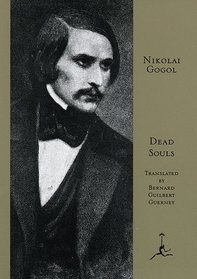Search -
Dead Souls (Modern Library)
Dead Souls - Modern Library
Author:
"I want to show all Russia in this novel," wrote Nikolai Gogol to Alexander Pushkin as he began writing Dead Souls in 1835. Published seven years later, Gogol's sardonic, bizarre tale revolves around Pavel Ivanovich Chichikov, a mystifying swindler who travels through provincial Russia trafficking in "souls"--those serfs who, even if dead, could... more »
Author:
"I want to show all Russia in this novel," wrote Nikolai Gogol to Alexander Pushkin as he began writing Dead Souls in 1835. Published seven years later, Gogol's sardonic, bizarre tale revolves around Pavel Ivanovich Chichikov, a mystifying swindler who travels through provincial Russia trafficking in "souls"--those serfs who, even if dead, could... more »
ISBN-13: 9780679602651
ISBN-10: 0679602658
Publication Date: 5/13/1997
Pages: 674
Rating: ?
ISBN-10: 0679602658
Publication Date: 5/13/1997
Pages: 674
Rating: ?
0 stars, based on 0 rating
Genres:
- Literature & Fiction >> General >> Classics
- Literature & Fiction >> General >> Contemporary
- Literature & Fiction >> World Literature >> Russian & Soviet
- Literature & Fiction >> Classics >> Russian
- Literature & Fiction >> Authors, A-Z >> ( G ) >> Gogol, Nikolai




